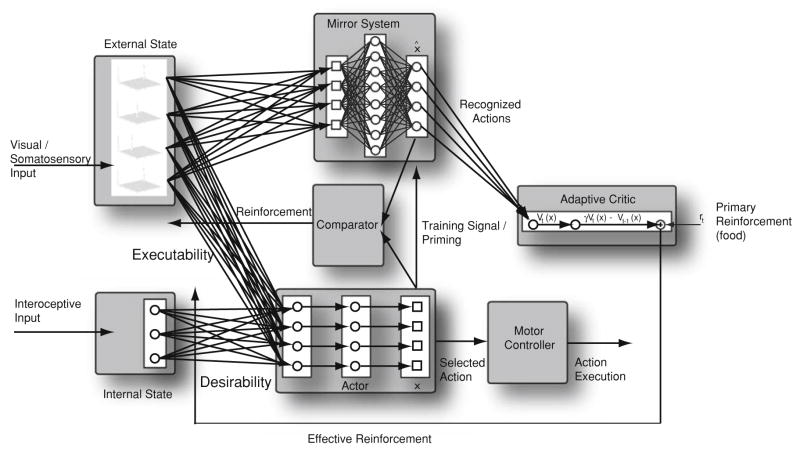Fig. 9.
A simplified version of the augmented competitive queuing (ACQ) system as structured for the sequencing of actions in general. A crucial change here is that the mirror system can support the representation of multiple actions. Thus, during a self movement, the mirror system can represent both the intended action as well as any other action whose external appearance matches the actual performance. In ACQ, the Actor selects for execution the action that has the highest current priority, defined as a combination of executability and desirability. Desirability is the expected reinforcement for executing an action in the current internal state (which may combine homeostatic variables and cognitive subgoals). Estimates of desirability are updated by the Critic, which employs temporal difference (TD) learning. A crucial innovation here is that the Critic assesses not only the current action but also those apparent actions reported by the Mirror System in making its assessments

